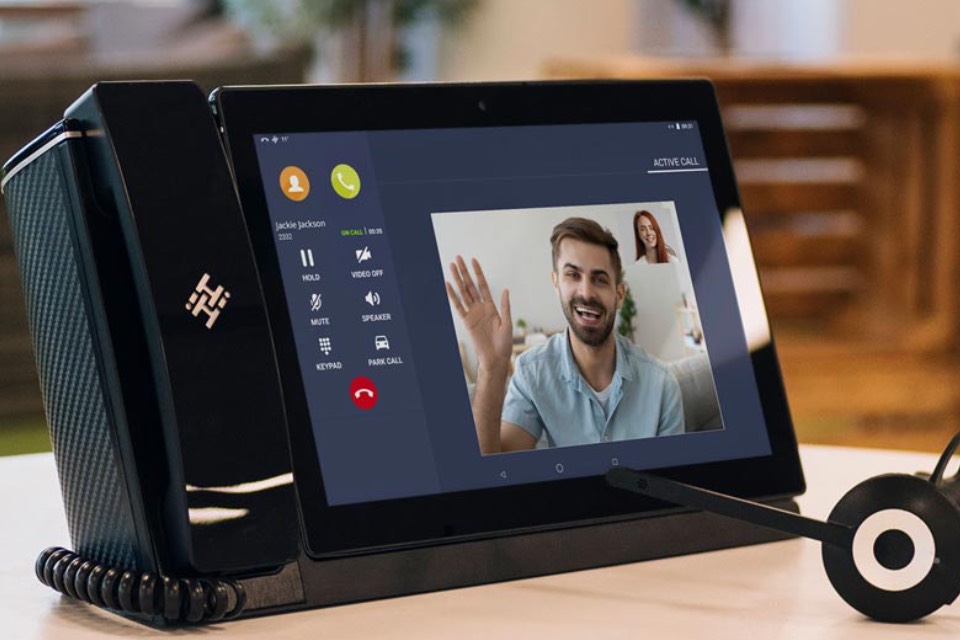With many UK office workers now operating from home, conference calls have undoubtedly become part of the daily routine. Business telecommunications provider, 4Com, investigated the nation’s thoughts on bad telephone manners, revealing the habits to avoid.
According to the research, the five most annoying phone habits, are:
- Someone having a conversation with someone else in the background (43%)
- Being interrupted whilst speaking (42%)
- Someone not listening/clearly appearing distracted (41%)
- Being put on hold (39%)
- Someone eating their food/having a drink whilst speaking (35%)
- Playing music in the background (29%) and speaking too quietly (28%) or loudly (16%) were also cited as bugbears.
When asked how they would respond to these annoying habits more than a quarter (26%) of people said they wouldn’t hesitate to interrupt the person and point out their bad phone habits. One in five (19%) would even go as far as to simply hang up the phone with no explanation.
To ensure these conference calls run as smoothly as possible, Mark Pearcy, Head of Marketing at 4Com, offers five tips:
Sit in a separate room to others in your household
Having a conversation with someone in the background has been revealed as the most annoying phone habit, so if you are at home with members of your household make sure they don’t interrupt you while on a call. Tell them you’re going on an important call, sit in a separate room and make sure nobody distracts you during this time – this will all help towards a productive and stress-free call.
Make sure everyone has time to speak
Being interrupted while speaking is the second biggest bugbear while on a conference call. Although replacing a meeting with a conference call can be hard, it’s important to make sure that each person is engaged in the call and has the chance to have their say without being cut off.
Put your microphone on mute while you’re not speaking, take a few seconds after someone has spoken before you respond to make sure they’re finished, and if you start speaking at the same time as someone else, stop and let them speak first. This will help make sure everyone’s voice is heard and nobody is interrupting anyone else.
Make sure you’re present
It’s vital that you remain present while on a call. Without face to face interaction, it can be tempting to switch off when you’re not speaking and go on your phone or browse the web instead, but you must make sure you’re engaging with everyone on the call – the same as you would in a face to face meeting. Make sure you’re listening to everyone who is speaking and responding when necessary. A video call can sometimes help with this as there’s nowhere for you and your colleagues to hide!
Have a snack, drink or break before your call
Being put on hold and eating or drinking while speaking round up the top five most annoying phone call habits, so are other important factors to consider while taking conference calls from home.
Before a long call, make sure you have eaten so you’re not doing this while speaking to your colleagues. It’s perfectly fine to have a drink while on a call but try not to do it when you’re speaking. I’d also recommend taking a toilet break before a call to avoid needing to break and put your colleagues on hold mid-call.
Speak at the right volume
Playing music in the background or speaking too quietly or loudly were considerable annoyances in our survey, so when on a conference call with your colleagues, stop playing any music as this can be a huge distraction. It’s also important not to shout or whisper while speaking on a call and speak at the volume you would normally; using headphones can help with this if you’re struggling.
Summarising the findings, Pearcy added: “With more people working from home than ever due to recent global events, it’s never been more important to understand the etiquette of proper phone communication. Abiding by some simple guidelines can go a long way in making sure you and your colleagues are being as productive and supportive of each other as possible.
“What’s more, unlike face-to-face communication, while on the phone you can’t work off your colleague’s facial expressions or body language, so having good manners on the phone, and making sure everyone is heard and understood, is more important than ever at this difficult time.”















